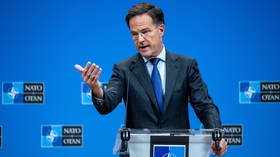Russia-EU seeking compromise on energy
The EU-Russia energy partnership has become more of a power struggle over the past year. Although some major cross-border deals were signed in the electricity and gas sectors, politicians from both the EU and Russia were looking for compromises that neith
The European Union imports around a quarter of its gas needs from Russia, although it’s keen to start getting more from elsewhere.
Russia needs the EU too, as most of its pipelines point West, not East. In addition, Europe is buying around two thirds of what Russia produces and needs to sell on.
The relationship is inter-dependent, but it 's a delicate balance and over the last year it’s become even more fragile, with Russia criticising the European Commission for blocking Gazprom's expansion in Europe.
In autumn, the European Commission proposed legislation on unbundling the gas and electricity sectors throughout Europe to increase competition.
Speaking at a Russia-EU meeting in Brussels last October, Andris Piebalgs, EU Energy Commissioner, said, “The reason for our proposal is that we'd like a very clear separation between transport and supply.”
In Russia, this has been happening in the electricity sector, with the former monopoly Unified Energy System spinning off many of its assets into separate companies in 2007.
Germany's E.ON took control of the generating company OGK-4 and Italy's Enel bought 25% of OGK-5.
However, Gazprom has no plans to separate its extraction and distribution businesses. The Russian government says the nature of the gas market means it makes sense to keep the company together.
“The short-term market rules the situation in the electricity sector to a considerable extent, whereas it is the long-term market and long-term supply schemes that apply to the natural gas industry, with a different scheme of guaranteeing, insuring and crediting the investment,” said Viktor Khristenko, Russia’s Industry and Energy Minister.
Economic protectionism in strategic sectors – particularly energy – is on the rise across the globe and it’s got experts concerned.
“In order to surmount this slowdown in the global economy you need more open markets, including being open to foreign investment. But this is not the signal we're seeing – whether it’s from the leading economies like the EU or the U.S. or whether it’s the developing world,” said Yaroslv Lissovolik, an economist from Deutsche Bank in Russia.
Although deals between companies from both sides continue to go ahead, on a political level the EU and Russia are struggling to find legislation they can agree on.
Russia wants assurance it won't be blocked in Europe, and the EU remains committed to the International Energy Charter.
But Russia is refusing to sign up to the latest version, as it would open up its gas pipeline network to foreign competition.












